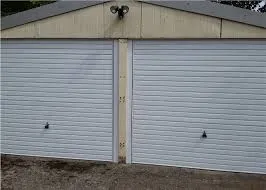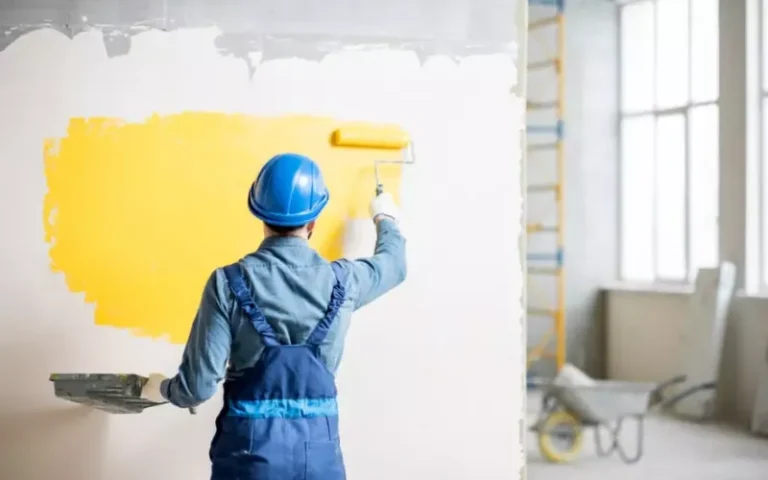Preventing Rust and Corrosion in Garage Doors: Essential Maintenance Tips
Your garage door is one of the most exposed parts of your home, constantly facing weather elements, humidity, and daily wear and tear. Over time, rust and corrosion can develop, compromising both the appearance and functionality of your garage door. If left untreated, corrosion can weaken metal components, leading to costly repairs or even complete door replacement.
Fortunately, with proper rust prevention for garage doors, you can protect your investment and extend the lifespan of your garage door. Regular maintenance, protective coatings, and a few strategic care practices can significantly reduce the risk of rust and keep your garage door operating smoothly for years.
In this guide, we’ll explore the best anti-corrosion tips and essential maintenance strategies to help you safeguard your garage door from rust and deterioration.
Understanding Rust and Corrosion in Garage Doors
What Causes Rust and Corrosion?
Rust forms when metal is exposed to oxygen and moisture over time, creating iron oxide—a reddish-brown substance that weakens metal surfaces. Corrosion occurs due to environmental factors such as rain, humidity, and chemical exposure, accelerating the deterioration of metal components.
Common Causes of Rust on Garage Doors:
- Moisture Exposure: Rain, snow, and humidity increase the likelihood of rust formation.
- Salt Damage: Homes near coastal areas or snowy regions often experience faster corrosion due to salty air and de-icing salts.
- Scratches and Surface Damage: Any chipped or scratched paint exposes the metal underneath, making it more vulnerable to rust.
- Lack of Maintenance: Dirt, grime, and neglected lubrication contribute to rust buildup over time.
Essential Rust Prevention Tips for Garage Doors
1. Regular Cleaning to Remove Dirt and Debris
Keeping your garage door clean is one of the simplest yet most effective ways to prevent rust.
How to Clean Your Garage Door Properly:
- Mix mild detergent with warm water and use a soft sponge to scrub the surface.
- Rinse with a hose, ensuring that no soapy residue remains.
- Dry the door with a clean cloth to prevent moisture buildup.
Pro Tip: Clean your garage door at least once every three months, or more frequently if you live in a high-humidity area.
2. Apply Protective Coatings and Sealants
A protective coating acts as a barrier against moisture and environmental elements, reducing the risk of rust and corrosion.
Recommended Protective Treatments:
- Wax Coating: Applying automotive wax to a metal garage door creates a water-resistant shield.
- Rust-Proof Paint: Use high-quality, rust-inhibiting paint designed for outdoor metal surfaces.
- Sealants and Weatherproofing Sprays: Silicone-based sprays can help repel moisture.
Pro Tip: Reapply protective coatings at least once a year to maintain effectiveness.
3. Keep Garage Door Tracks and Hardware Well-Lubricated
Lubrication prevents metal components from grinding against each other, reducing friction and minimizing the risk of rust formation.
How to Lubricate Garage Door Components:
- Apply silicone-based or lithium grease lubricant to hinges, rollers, and springs.
- Avoid WD-40, as it attracts dirt and may wear off quickly.
- Wipe off excess lubricant to prevent buildup.
Pro Tip: Lubricate moving parts every six months to keep your garage door operating smoothly.
4. Inspect and Repair Scratches or Damage Immediately
Even minor scratches or dents can expose metal to moisture, leading to rust over time.
Steps to Repair Small Surface Damage:
- Sand down the affected area using fine-grit sandpaper.
- Apply a rust-inhibiting primer to the exposed metal.
- Paint over the area with a matching weather-resistant paint.
Pro Tip: Regularly inspect your garage door for scratches, dents, or peeling paint, especially after storms or heavy usage.
5. Ensure Proper Drainage and Ventilation in the Garage
Poor ventilation and standing water near your garage can accelerate rust formation.
Ways to Improve Garage Ventilation and Drainage:
- Install proper gutter systems to prevent water from pooling near the garage door.
- Use dehumidifiers or exhaust fans inside the garage to reduce humidity levels.
- Keep garage door seals in good condition to prevent water infiltration.
Pro Tip: If you live in an area with high humidity, consider adding moisture-absorbing materials like silica gel packs inside your garage.
6. Avoid Harsh Chemicals and Road Salt Buildup
Chemical exposure, particularly road salt during winter, can significantly contribute to corrosion.
Preventing Salt-Related Rust Damage:
- Rinse the lower portion of your garage door after snowy or icy conditions to remove salt buildup.
- Avoid using harsh chemical cleaners that could strip protective coatings.
- Apply a corrosion-resistant spray to metal components that are frequently exposed to road salt.
Pro Tip: If your home is near the ocean, wash your garage door with fresh water monthly to remove salty residue.
7. Schedule Professional Inspections and Maintenance
While DIY maintenance is essential, professional servicing ensures that any hidden rust or wear is addressed before it becomes a bigger problem.
Why Hire a Garage Door Professional?
- They can spot early signs of rust or structural weaknesses that might go unnoticed.
- Professionals have specialized anti-corrosion treatments for long-term protection.
- They ensure that garage door springs, rollers, and hinges remain in optimal condition.
Pro Tip: Schedule a professional garage door maintenance check-up once a year to prevent major rust or mechanical failures.
When to Call a Professional for Rust and Corrosion Issues
Despite regular maintenance, rust and corrosion may still occur in some cases. If you notice the following issues, it’s time to call a garage door expert:
✅ Extensive Rust Buildup – If rust has spread across multiple areas, professional rust removal and repainting may be necessary.
✅ Difficulty Opening or Closing the Door – Rust on hinges or tracks can hinder operation, requiring expert repair.
✅ Structural Weakness or Sagging Panels – Severe corrosion can compromise the door’s stability, posing safety risks.
✅ Persistent Noises or Grinding Sounds – If rust has caused significant friction between moving parts, urgent servicing is needed.
Pro Tip: Don’t wait until your garage door stops functioning. Address rust-related concerns early to avoid costly replacements.
Final Discussion: Protect Your Garage Door with Proper Maintenance
Rust and corrosion are common problems for garage doors, but with the right care and anti-corrosion tips, you can keep your door in excellent condition for years. By cleaning regularly, applying protective coatings, lubricating key components, and ensuring proper ventilation, you can significantly reduce the risk of rust and maintain a smooth-functioning garage door.
Prevention is always better than costly repairs. If you spot signs of rust or damage beyond minor surface issues, consult a professional for urgent garage door maintenance before the problem escalates.
Take action today! Implement these rust prevention strategies and schedule a professional inspection to ensure your garage door remains rust-free and durable for years to come.
For businesses looking to enhance their online presence, EVPro Marketing offers top-tier digital marketing solutions to boost visibility and customer engagement. Visit EVPro Marketing to take your business to the next level!






